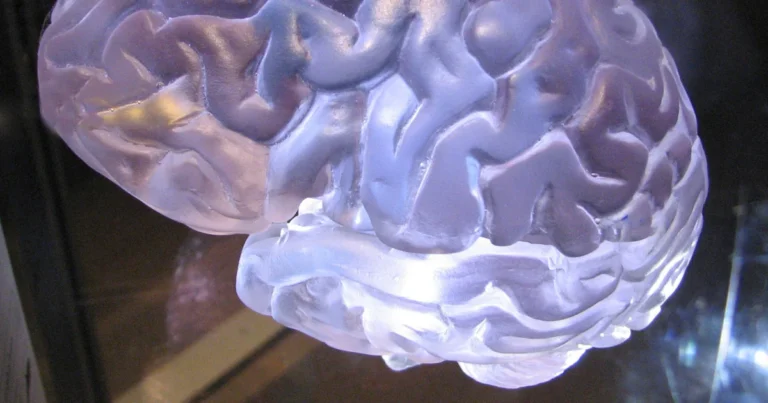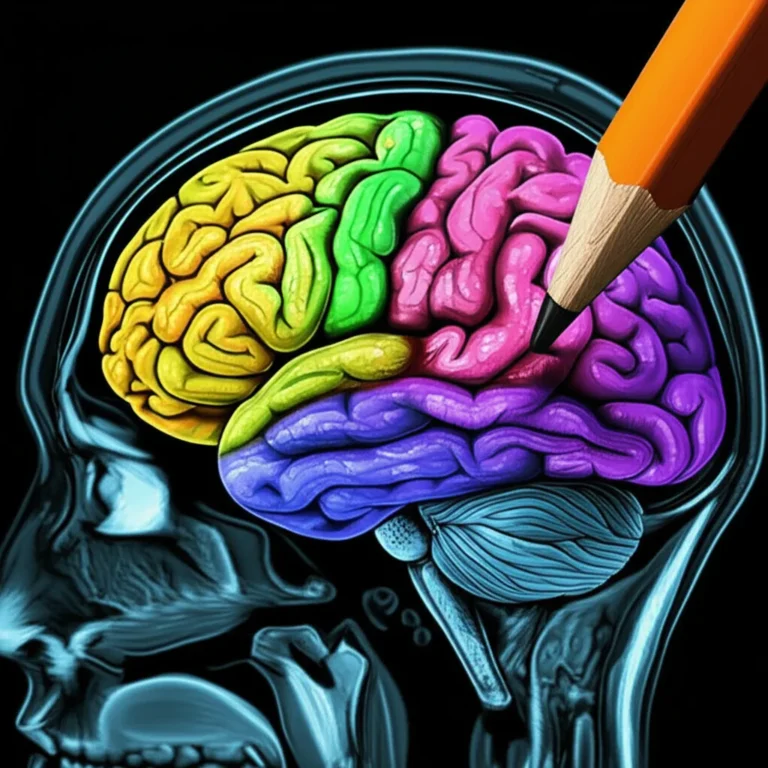Support our educational content for free when you buy through links on our site. Learn more
Unlocking Gifted IQ Score Range: 7 Levels You Didn’t Know About 🧠 (2026)
Have you ever wondered what your IQ score really says about your giftedness? Or how experts classify the dazzling spectrum of gifted IQ ranges beyond the usual “130 and above” label? You’re about to discover the 7 distinct levels of giftedness that reveal far more than just a number on a test. From early childhood prodigies to ultra gifted adults, this guide dives deep into what these scores mean, how they’re measured, and why understanding your gifted IQ range can transform your educational and personal journey.
Here’s a little teaser: Did you know that giftedness isn’t just about raw intelligence? Emotional depth, creativity, and even social skills play a huge role — and some gifted individuals face unique challenges despite their high IQ. Stick around to learn how to spot these traits, explore the best IQ tests for gifted classification, and get expert tips on supporting gifted learners at every level.
Key Takeaways
- Gifted IQ scores start around 120 but range up to genius-level 170+, with seven nuanced levels that help tailor education and support.
- IQ tests like the WISC and Stanford-Binet measure different cognitive skills, so multiple assessments provide the clearest giftedness profile.
- Giftedness involves more than IQ: creativity, emotional intelligence, and social skills are vital for success and well-being.
- Understanding your gifted IQ level can guide educational programs, enrichment, and career development tailored to your strengths and needs.
- Gifted individuals often experience asynchronous development, requiring emotional and social support alongside intellectual challenge.
Ready to unlock the full story behind your gifted IQ score? Let’s dive in!
Table of Contents
- ⚡️ Quick Tips and Facts About Gifted IQ Score Range
- 🧠 Understanding Gifted IQ Scores: What Does It Really Mean?
- 📜 The Evolution of IQ Testing and Giftedness Definitions
- 🔢 7 Levels of Giftedness: Beyond the Basic IQ Score Range
- 🎯 How IQ Tests Measure Giftedness: Popular Tests Explained
- 🧩 Gifted IQ Score Ranges by Test Type: Stanford-Binet, WISC, and More
- 💡 Signs and Traits of Gifted Individuals Across IQ Ranges
- 🏫 Educational Programs and Resources for Different Gifted IQ Levels
- 🧑 🏫 How to Support Gifted Children: Tips for Parents and Educators
- 🌍 Giftedness Around the World: Cultural Perspectives on IQ Scores
- 🧪 The Science Behind IQ Scores and Giftedness: What Research Says
- 📊 Debunking Myths: What Gifted IQ Scores Don’t Tell You
- 🔍 How to Interpret Your Gifted IQ Score: Expert Advice
- 🛠️ Tools and Online IQ Tests to Estimate Giftedness at Home
- 🎓 Famous Gifted Individuals and Their IQ Scores: Inspiration and Insights
- 📚 Recommended Books and Resources on Gifted IQ and Intelligence
- 🧭 Navigating the Gifted IQ Journey: Next Steps After Testing
- ✅ Conclusion: Unlocking the Mystery of Gifted IQ Score Range
- 🔗 Recommended Links for Gifted IQ Score Range
- ❓ FAQ: Your Top Questions About Gifted IQ Scores Answered
- 📑 Reference Links and Credible Sources on Gifted IQ
⚡️ Quick Tips and Facts About Gifted IQ Score Range
Welcome to the fascinating world of gifted IQ scores! If you’ve ever wondered what it means to have a gifted IQ or how those numbers translate into real-world abilities, you’re in the right place. At Free IQ Tests™, we’ve helped thousands of curious minds understand their IQ scores and what they imply about giftedness. Here are some quick facts to get you started:
- Gifted IQ scores generally start at 120, but many experts, including Dr. Deborah Ruf, place the threshold at 130 or above.
- The average IQ is set at 100, with most people scoring between 85 and 115.
- Gifted individuals typically fall in the top 2-10% of the population depending on the cutoff used.
- IQ tests measure cognitive abilities like verbal comprehension, reasoning, working memory, and processing speed.
- Giftedness is not just about IQ; creativity, emotional intelligence, and motivation also play crucial roles.
- Gifted children often show early signs like advanced reading, curiosity, and problem-solving skills.
- Parental IQ and environment influence giftedness, but it’s a complex interplay of genetics and nurture.
If you want to dive deeper into what these numbers mean, how giftedness is classified, and how to support gifted individuals, keep reading! And if you’re curious about whether an IQ of 132 is good, check out our detailed article Is 132 IQ good? for more insights.
🧠 Understanding Gifted IQ Scores: What Does It Really Mean?
When you hear “gifted IQ score,” what comes to mind? A genius? A prodigy? Well, it’s a bit more nuanced than that. IQ scores are standardized measures designed to assess cognitive abilities relative to the general population. But what exactly does a gifted IQ score signify?
What Is an IQ Score?
IQ, or Intelligence Quotient, is a number derived from standardized tests like the Wechsler scales or Stanford-Binet. The average IQ is set at 100, with a standard deviation of 15 points. This means:
- 85-115: Average
- 116-119: Above average
- 120-129: Moderately gifted
- 130+: Gifted and highly gifted
Gifted IQ: More Than Just a Number
An IQ score of 130 or above places you roughly in the top 2% of the population. But giftedness is more than just a high score:
- It reflects potential for advanced learning and problem-solving.
- It often correlates with early developmental milestones, such as early reading or advanced language skills.
- Gifted individuals may show intense curiosity, creativity, and deep focus.
However, as the first YouTube video we reference points out, IQ is just one lens through which to view intelligence. Emotional intelligence, creativity, and social skills are equally important and often underrepresented in IQ testing.
Why Does Giftedness Matter?
Understanding gifted IQ scores helps parents, educators, and psychologists tailor educational programs and support systems. Gifted children often need customized learning environments to thrive, as traditional classrooms may not challenge them enough.
📜 The Evolution of IQ Testing and Giftedness Definitions
The concept of IQ and giftedness has evolved dramatically since the early 20th century.
Early IQ Testing
- The first IQ test was developed by Alfred Binet in the early 1900s to identify children needing special education.
- Later, Lewis Terman adapted Binet’s test into the Stanford-Binet scale, popularizing IQ testing in the U.S.
- The Wechsler scales (WPPSI, WISC, WAIS) introduced in mid-20th century remain the gold standard today.
Changing Definitions of Giftedness
- Initially, giftedness was defined mostly by IQ scores above 130.
- Over time, researchers like Dr. Deborah Ruf expanded the concept to include multiple levels of giftedness and different cognitive profiles.
- Modern definitions also consider talent domains (e.g., artistic, leadership) and emotional and social factors.
Why This Matters Today
The evolution reflects a growing understanding that giftedness is multi-dimensional. This has led to more nuanced classifications and educational approaches that better serve gifted individuals.
🔢 7 Levels of Giftedness: Beyond the Basic IQ Score Range
Dr. Deborah Ruf’s pioneering work introduced five levels of giftedness, but we’re taking it a step further with seven levels to capture the full spectrum of gifted IQ scores. Here’s a breakdown:
| Level | IQ Range | Percentile | Key Characteristics |
|---|---|---|---|
| 1 | 120-129 | 90th-98th | Moderately gifted; early reading, advanced skills |
| 2 | 130-135 | 98th-99th | Highly gifted; early mastery of kindergarten skills |
| 3 | 136-140 | 99th | Exceptionally gifted; advanced reasoning, curiosity |
| 4 | 141-150 | 99.5th | Exceptionally to profoundly gifted; early academic achievements |
| 5 | 151-160 | 99.8th | Profoundly gifted; rapid learning, complex problem-solving |
| 6 | 161-170 | 99.9th | Ultra gifted; exceptional creativity and insight |
| 7 | 171+ | 99.99th | Genius-level; rare intellectual abilities |
What Sets These Levels Apart?
- Level 1-2: Often found in gifted programs; children may need enrichment to stay engaged.
- Level 3-4: May require acceleration or specialized curricula; often show intense focus and early talents.
- Level 5-7: Extremely rare; may face social and emotional challenges; require highly individualized support.
Why Knowing Your Level Helps
Understanding where you or your child falls on this spectrum can guide educational choices and expectations. For example, a child at Level 4 might benefit from early college entrance, while Level 1 might thrive with advanced classroom materials.
🎯 How IQ Tests Measure Giftedness: Popular Tests Explained
Not all IQ tests are created equal! Different tests emphasize different cognitive skills, which can affect giftedness classification.
Top IQ Tests for Giftedness
| Test Name | Age Range | Focus Areas | Gifted IQ Threshold | Notes |
|---|---|---|---|---|
| Wechsler Intelligence Scale for Children (WISC) | 6-16 years | Verbal comprehension, working memory, processing speed | 130+ | Most widely used for children |
| Stanford-Binet Intelligence Scales | 2-85+ years | Fluid reasoning, knowledge, quantitative reasoning | 130+ | One of the oldest and most respected |
| Kaufman Assessment Battery for Children (KABC) | 3-18 years | Processing and cognitive abilities | 130+ | Emphasizes learning styles |
| Raven’s Progressive Matrices | 5-75+ years | Nonverbal abstract reasoning | 130+ | Culture-fair test, less language bias |
How Tests Differ
- Wechsler scales provide a Full Scale IQ (FSIQ) and index scores like Verbal Comprehension Index (VCI) and Processing Speed Index (PSI).
- Stanford-Binet focuses more on fluid reasoning and knowledge.
- Raven’s Matrices is often used when language or cultural bias is a concern.
What This Means for Gifted Classification
A child might score 135 on the WISC but 128 on the Raven’s test due to differences in test design. This is why multiple assessments and professional interpretation are crucial.
🧩 Gifted IQ Score Ranges by Test Type: Stanford-Binet, WISC, and More
Let’s get granular and compare how gifted IQ score ranges appear across popular tests.
| IQ Test | Gifted Threshold | Score Range for Gifted | Notes on Interpretation |
|---|---|---|---|
| WISC-V | 130+ | 130-160+ | Includes subscales; GAI often preferred for giftedness |
| Stanford-Binet 5 | 130+ | 130-170+ | Emphasizes reasoning and knowledge |
| KABC-II | 130+ | 130-160+ | Focuses on processing and learning styles |
| Raven’s Matrices | 130+ | 130-160+ | Nonverbal; good for diverse populations |
General Ability Index (GAI) vs Full Scale IQ (FSIQ)
- The GAI (available in WISC) excludes working memory and processing speed, often better reflecting giftedness.
- Gifted children may have uneven profiles, with high verbal and reasoning but lower processing speed.
Practical Tip
If you’re pursuing gifted classification or services, ask your psychologist about the GAI score and multiple test results to get a full picture.
💡 Signs and Traits of Gifted Individuals Across IQ Ranges
IQ scores are numbers, but giftedness shows up in behaviors and traits. Here’s what you might observe at different gifted IQ levels:
| IQ Range | Common Traits and Behaviors |
|---|---|
| 120-129 | Early reading, strong memory, curiosity, advanced vocabulary |
| 130-135 | Rapid learning, intense focus, early math skills, questioning |
| 136-140 | Abstract thinking, deep interests, early problem-solving |
| 141-150 | Advanced reasoning, early academic achievements, leadership |
| 151+ | Exceptional creativity, complex problem-solving, existential thoughts |
Anecdote from Our Educators
One of our team members recalls a gifted child with an IQ of 138 who taught herself to read at age 3 and was solving algebra problems by age 7. Yet, she struggled socially because her peers couldn’t relate to her interests. This highlights the importance of emotional and social support alongside intellectual growth.
What to Watch For
- Early milestones: Early reading, counting, or curiosity about complex topics.
- Learning pace: Quickly mastering new concepts and becoming bored with repetition.
- Social challenges: Feeling isolated or misunderstood by peers.
- Emotional intensity: Deep feelings and sensitivity.
🏫 Educational Programs and Resources for Different Gifted IQ Levels
Finding the right educational fit is crucial for gifted learners. Here’s a quick guide to programs based on IQ ranges:
| IQ Range | Recommended Educational Approach | Examples of Programs/Resources |
|---|---|---|
| 120-129 | Enrichment programs, advanced classes | Local gifted programs, Kumon, BrainPOP |
| 130-140 | Acceleration, specialized gifted schools | Johns Hopkins Center for Talented Youth (CTY), Davidson Academy |
| 141+ | Early college entrance, mentorship, individualized curricula | Duke TIP, Mensa programs, online university courses |
Tips for Parents and Educators
- Advocate for individualized education plans (IEPs) or 504 plans if needed.
- Use project-based learning to engage gifted learners.
- Encourage social-emotional learning to support well-being.
- Explore online resources like Khan Academy, Brilliant.org, and Coursera for advanced topics.
🧑 🏫 How to Support Gifted Children: Tips for Parents and Educators
Giftedness is a gift — but it can come with challenges. Here’s how you can help gifted children thrive:
1. Recognize and Validate Their Abilities
- Celebrate their achievements without pressure.
- Understand that giftedness varies widely; no two gifted children are alike.
2. Provide Intellectual Challenge
- Offer stimulating materials and experiences.
- Encourage questions and exploration.
3. Support Emotional and Social Needs
- Help them develop friendships with peers who share interests.
- Teach coping strategies for frustration and perfectionism.
4. Collaborate with Schools
- Work with teachers to tailor learning plans.
- Seek out gifted education specialists.
5. Encourage Balance
- Promote hobbies, physical activity, and downtime.
- Avoid overloading with too many activities.
🌍 Giftedness Around the World: Cultural Perspectives on IQ Scores
IQ and giftedness are often viewed differently across cultures.
Western Perspectives
- Emphasize standardized IQ testing and academic achievement.
- Gifted programs are common in schools.
Eastern Perspectives
- Sometimes focus more on effort and discipline than innate ability.
- Giftedness may be recognized through achievement rather than IQ scores.
Challenges of Cross-Cultural IQ Testing
- Language and cultural bias can affect test results.
- Tests like Raven’s Progressive Matrices aim to reduce bias.
Why This Matters
Understanding cultural differences helps educators and psychologists provide fair assessments and supports for gifted individuals worldwide.
🧪 The Science Behind IQ Scores and Giftedness: What Research Says
Recent studies shed light on the cognitive profiles and inheritance of giftedness.
Cognitive Profiles of Gifted Children
- Gifted children often score highest in verbal comprehension and visual-perceptual reasoning.
- Working memory and processing speed may be relatively lower but still above average.
- The General Ability Index (GAI) is often a better indicator of giftedness than Full Scale IQ (FSIQ).
Parental Influence and Genetic Factors
- Research shows moderate correlations between maternal IQ and child IQ, especially in working memory and processing speed.
- Fathers’ IQ correlations are less consistent.
- Giftedness is influenced by a complex mix of genetics and environment.
Source Spotlight
A study published in Frontiers in Psychology (2022) highlights these findings and provides publicly available data on gifted children and their parents (source).
📊 Debunking Myths: What Gifted IQ Scores Don’t Tell You
IQ scores are powerful but imperfect. Let’s bust some common myths:
Myth 1: Gifted IQ Means Genius-Level Intelligence
❌ Not always. Giftedness starts at 120, but genius-level IQs are typically above 160.
Myth 2: Gifted People Excel at Everything
❌ Gifted individuals may have uneven skills; some areas like processing speed can lag.
Myth 3: IQ Is Fixed and Unchangeable
❌ While IQ is relatively stable, cognitive skills can improve with practice and learning.
Myth 4: Giftedness Guarantees Success
❌ Success depends on many factors beyond IQ, including motivation, opportunity, and emotional health.
🔍 How to Interpret Your Gifted IQ Score: Expert Advice
Got your IQ test results and wondering what to do next? Here’s our step-by-step guide:
Step 1: Understand Your Score in Context
- Look at the Full Scale IQ and index scores (VCI, PRI, WMI, PSI).
- Consider the General Ability Index (GAI) if available.
Step 2: Compare to Gifted Thresholds
- Scores 120-129: Moderately gifted; enrichment recommended.
- Scores 130+: Gifted; consider acceleration or specialized programs.
Step 3: Reflect on Your Strengths and Weaknesses
- Are there areas where you scored significantly higher or lower?
- This can guide targeted learning strategies.
Step 4: Consult a Professional
- A psychologist or educational specialist can interpret results and recommend next steps.
Step 5: Plan Your Educational or Career Path
- Use your strengths to pursue challenging academic or career opportunities.
- Explore resources on IQ and Career Development for guidance.
🛠️ Tools and Online IQ Tests to Estimate Giftedness at Home
Curious about your IQ or your child’s potential giftedness? Here are some reliable tools:
| Test Name | Platform | Features | Notes |
|---|---|---|---|
| Mensa Workout | Mensa Official | 30-minute practice test | Not an official IQ test, but fun and indicative |
| WISC-V Practice Tests | Various educational sites | Sample questions from the official test | Good for children preparing for testing |
| Free IQ Tests at Free IQ Tests™ | Free IQ Tests | Variety of free tests with instant results | Great starting point for self-assessment |
Important Reminder
Online tests can provide estimates but are not substitutes for professional IQ testing. For official gifted classification, seek a licensed psychologist.
🎓 Famous Gifted Individuals and Their IQ Scores: Inspiration and Insights
Ever wonder how gifted IQ scores translate into real-life achievements? Here are some famous individuals and their estimated IQs:
| Name | Estimated IQ | Notable Achievements |
|---|---|---|
| Albert Einstein | 160-190 | Theoretical physicist, theory of relativity |
| Marie Curie | 180-190 | Nobel Prize-winning physicist and chemist |
| Stephen Hawking | 160-180 | Theoretical physicist, cosmology pioneer |
| Marilyn vos Savant | 186 | Guinness World Record for highest IQ |
| Bill Gates | 150-160 | Microsoft co-founder, philanthropist |
What We Learn
- High IQ can correlate with groundbreaking achievements but is not the sole factor.
- Many gifted individuals also exhibit passion, perseverance, and creativity.
For more inspiring stories, check out our Famous IQ Scores section.
📚 Recommended Books and Resources on Gifted IQ and Intelligence
Want to dive deeper? Here are some must-reads and resources:
| Title | Author | Why Read It? |
|---|---|---|
| 5 Levels of Gifted | Deborah Ruf, Ph.D. | Definitive guide on giftedness levels |
| Giftedness 101 | Linda Silverman | Comprehensive overview of giftedness |
| Frames of Mind | Howard Gardner | Introduces multiple intelligences theory |
| The Gifted Adult | Mary-Elaine Jacobsen | Focus on giftedness beyond childhood |
| Johns Hopkins Center for Talented Youth | JHU | Leading gifted education programs |
🧭 Navigating the Gifted IQ Journey: Next Steps After Testing
So, you’ve got your gifted IQ score — what now? Here’s how to move forward:
1. Celebrate Your Strengths
Recognize your unique cognitive gifts and potential.
2. Seek Appropriate Educational Opportunities
Look for programs or schools that match your level of giftedness.
3. Build a Support Network
Connect with other gifted individuals, parents, or educators.
4. Address Emotional and Social Needs
Giftedness can be isolating; seek counseling or peer groups if needed.
5. Keep Learning and Growing
Giftedness is a lifelong journey — embrace challenges and new experiences.
CHECK PRICE on IQ Testing Resources and Books:
- Stanford-Binet Intelligence Scales: Amazon | Pearson
- WISC-V: Amazon | Pearson
- Gifted Education Books: Amazon Giftedness Books
Ready to explore your gifted IQ range further? Dive into our Free IQ Tests to get started!
✅ Conclusion: Unlocking the Mystery of Gifted IQ Score Range

Wow, what a journey through the fascinating landscape of gifted IQ scores! From understanding the basics to exploring the nuanced seven levels of giftedness, we’ve unraveled the mystery behind those intriguing numbers. Remember, a gifted IQ score—typically starting at 120 and often pegged at 130 or above—is a powerful indicator of cognitive potential, but it’s just one piece of the puzzle.
We saw how giftedness isn’t a one-size-fits-all label. Whether you or your child fall into the moderately gifted range or the profoundly gifted elite, each level comes with unique strengths, challenges, and educational needs. The key takeaway? Giftedness requires tailored support, nurturing environments, and a holistic approach that values emotional and social development alongside intellectual growth.
If you’re wondering whether a gifted IQ score guarantees success or genius, the answer is a resounding not necessarily. IQ opens doors, but passion, perseverance, and opportunity walk you through them. And if you’re curious about how to interpret your score or what to do next, we’ve got you covered with expert advice and resources.
At Free IQ Tests™, we encourage you to embrace your giftedness with curiosity and confidence. Use your IQ score as a compass, not a cage. Keep learning, stay curious, and remember: intelligence is a lifelong adventure, not a final destination.
🔗 Recommended Links for Gifted IQ Score Range
Ready to explore more or pick up some of the best resources? Here are our top picks:
-
Stanford-Binet Intelligence Scales (5th Edition):
Amazon | Pearson Official Website -
Wechsler Intelligence Scale for Children (WISC-V):
Amazon | Pearson Official Website -
Giftedness Books on Amazon:
-
Free IQ Tests at Free IQ Tests™:
Explore Free IQ Tests -
Five Levels of Gifted by Dr. Deborah Ruf:
Learn More
❓ FAQ: Your Top Questions About Gifted IQ Scores Answered

Can a person with a gifted IQ score range still improve their cognitive abilities and intelligence?
Absolutely! While IQ scores tend to be relatively stable over time, cognitive abilities can be enhanced through deliberate practice, learning, and lifestyle choices. Engaging in challenging mental activities, learning new skills, maintaining physical health, and fostering curiosity all contribute to cognitive growth. Neuroplasticity—the brain’s ability to reorganize itself—means that intelligence is not fixed but dynamic.
What are the characteristics of someone with a gifted IQ score range?
Individuals with gifted IQ scores often exhibit:
- Advanced problem-solving and reasoning skills
- Early language and reading abilities
- Intense curiosity and deep focus
- Creativity and original thinking
- Sensitivity and emotional intensity
- Sometimes social challenges due to asynchronous development
These traits vary widely depending on the giftedness level and personal factors.
How is a gifted IQ score range determined and measured?
Gifted IQ ranges are typically determined using standardized intelligence tests such as the Wechsler scales (WISC, WAIS) or the Stanford-Binet. Scores are normed against the general population, with giftedness often defined as scoring two standard deviations above the mean (130+). Psychologists interpret both the Full Scale IQ and sub-indices to understand cognitive profiles.
What is the average IQ score for a gifted person?
By definition, gifted individuals score at least 120 to 130 or higher on IQ tests. The average IQ for the general population is 100, so gifted IQ scores place individuals well above average, often in the top 2-10% percentile.
What IQ score is considered gifted or highly intelligent?
- Gifted: IQ of 130 or above (top 2%)
- Highly gifted: IQ of 145 or above
- Profoundly gifted: IQ of 160 or above
These thresholds can vary slightly depending on the test and expert definitions.
How can I accurately test my IQ score at home?
While many online IQ tests provide fun and approximate results, official IQ testing requires a licensed psychologist administering standardized tests like the WISC or Stanford-Binet. For a reliable estimate at home, try reputable practice tests such as the Mensa Workout or free tests on Free IQ Tests™, but remember these are not diagnostic.
What are the best methods to improve my IQ over time?
- Engage in lifelong learning and challenging cognitive tasks
- Practice problem-solving and critical thinking regularly
- Maintain physical health through exercise and nutrition
- Get adequate sleep and manage stress
- Learn new languages or musical instruments
- Use brain-training apps cautiously—focus on real-world skills
Can a gifted IQ score predict academic or career success?
IQ is a strong predictor of academic performance, especially in early education, but it is not the sole determinant of career success. Factors like motivation, emotional intelligence, social skills, creativity, and opportunity play crucial roles. Many gifted individuals excel, but success depends on a holistic mix of traits and circumstances.
How do emotional and social skills impact gifted individuals?
Gifted individuals often experience asynchronous development, meaning their intellectual abilities may outpace emotional or social maturity. This can lead to challenges such as feeling isolated or misunderstood. Supporting emotional intelligence and social skills is essential for their overall well-being and success.
Are there cultural biases in IQ testing for giftedness?
Yes. Some IQ tests may contain language or cultural biases that affect scores, especially for individuals from diverse backgrounds. Tests like Raven’s Progressive Matrices aim to reduce bias by focusing on nonverbal reasoning. It’s important for psychologists to consider cultural context when interpreting gifted IQ scores.
📑 Reference Links and Credible Sources on Gifted IQ
- Deborah Ruf, Ph.D., Five Levels of Gifted: https://fivelevelsofgifted.com/what-is-giftedness-2/
- National Association for Gifted Children (NAGC): https://www.nagc.org/resources
- Mensa International: https://www.mensa.org/
- Wechsler Intelligence Scales (Pearson): https://www.pearsonassessments.com/
- Stanford-Binet Intelligence Scales (Pearson): https://www.pearsonassessments.com/store/usassessments/en/Store/Professional-Assessments/Cognition-%26-Neuro/Stanford-Binet-Intelligence-Scales-%7C-Fifth-Edition/p/100000392.html
- Frontiers in Psychology, Cognitive Profiles of Gifted Children and Parental IQ Correlations (2022): https://www.ncbi.nlm.nih.gov/pmc/articles/PMC9680488/
- Free IQ Tests™ Category: https://www.freeiqtests.org/category/free-iq-tests/
- IQ Test FAQ at Free IQ Tests™: https://www.freeiqtests.org/category/iq-test-faq/
- Famous IQ Scores at Free IQ Tests™: https://www.freeiqtests.org/category/famous-iq-scores/
- IQ and Career Development at Free IQ Tests™: https://www.freeiqtests.org/category/iq-and-career-development/
- Children’s IQ Tests at Free IQ Tests™: https://www.freeiqtests.org/category/childrens-iq-tests/
We hope this comprehensive guide has illuminated the many facets of gifted IQ score ranges and empowered you to explore your own or your child’s giftedness with confidence and curiosity! 🎓✨






